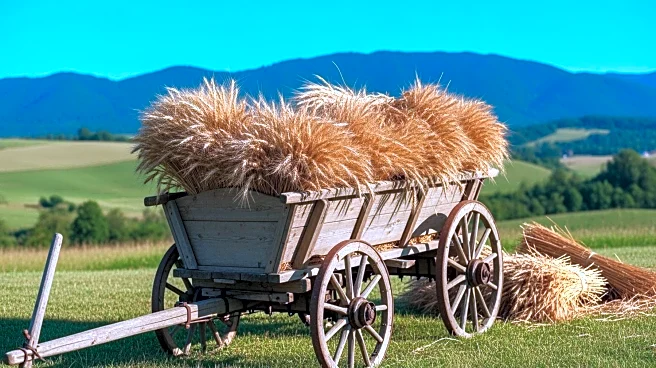What's Happening?
The Ministry of Agriculture, Irrigation, and Livestock in Afghanistan has purchased surplus wheat from farmers, storing it in government silos. This initiative, directed by the Leader of the Islamic Emirate of Afghanistan, aims to support farmers, prevent
wheat smuggling, and prepare for emergencies. The ministry stored 21,400 tons of wheat from various provinces, valued at 500 million Afghanis. The stored wheat will be used to stabilize market prices if they rise. Economic experts highlight the importance of this initiative in reducing Afghanistan's dependence on wheat imports and strengthening food self-sufficiency.
Why It's Important?
The purchase of surplus wheat is a strategic move to bolster Afghanistan's agricultural economy and ensure food security. By reducing reliance on imports, Afghanistan can enhance its economic resilience and maintain stable food prices. This initiative also supports farmers by providing a reliable market for their produce, encouraging increased production. The program's success could lead to job creation and inflation control, contributing to overall economic stability. The government's proactive approach in managing agricultural resources is crucial for long-term sustainability and self-sufficiency.
What's Next?
Efforts are underway to increase domestic wheat production by an additional 2 million metric tons to meet Afghanistan's annual demand. The government plans to continue supporting farmers through storage programs and other initiatives. Monitoring market conditions and adjusting policies will be essential to ensure the program's effectiveness. The success of these efforts could serve as a model for other agricultural sectors, promoting broader economic development and stability in Afghanistan.















